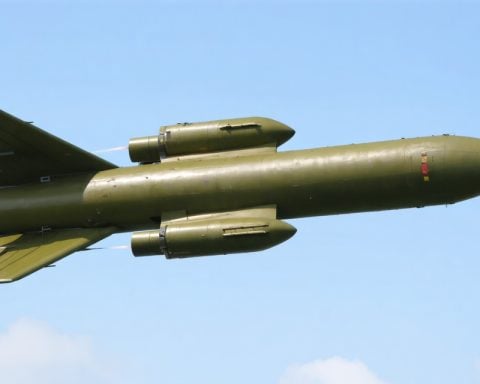The F-22 Raptor is revered as a marvel of modern aviation, a symbol of speed, stealth, and technological prowess. Yet, this groundbreaking aircraft raises essential questions about the future of military technology and fiscal responsibility in defense planning. As governments invest billions in defense projects, understanding the implications of such investments becomes crucial.
On one hand, the F-22’s capabilities are a testament to human ingenuity. Capable of reaching speeds surpassing Mach 1.8, this stealth fighter dominates the skies with unmatched agility and advanced avionics, providing a strategic advantage that could deter potential threats. However, the Raptor’s impressive statistics come with a monumental financial burden.
The creation and upkeep of these fighters exceed $150 million per unit, igniting debates about defense spending. Critics argue that such financial commitments, while enhancing defense capabilities, might overshadow critical investments in broader security frameworks or humanitarian needs. Is the extraordinary speed and agility worth the exorbitant costs, or do these factors hint at a deeper need to reassess military spending priorities?
Furthermore, the cutting-edge technology present in the F-22 could potentially trickle down to civilian industries. Historically, military innovations have paved the way for breakthroughs in commercial aviation, enhancing safety and efficiency. Yet, such transitions are neither immediate nor guaranteed, often taking decades to manifest fully.
As society navigates these choices, a critical question arises: When prioritizing advanced military technology, how can we ensure that the pursuit of technological supremacy aligns with equitable and sustainable progress for all?
F-22 Raptor: The Stunning Fighter Jet Pushing Boundaries in Military Aviation
The F-22 Raptor continues to be a centerpiece in discussions about advanced military aviation and defense spending. Beyond its renowned capabilities, several new insights and advancements have come to light that paint a fuller picture of the Raptor’s role in modern aviation and military strategy.
Features and Innovations
The F-22 Raptor remains one of the world’s most sophisticated fighter jets. Among its standout features are its use of stealth technology, which makes it nearly invisible to radar, and its ability to engage targets at long range. The aircraft is equipped with advanced avionics and sensors, allowing unparalleled situational awareness and connectivity with other military assets. Moreover, its supercruise capability enables sustained supersonic flight without afterburners, conserving fuel and expanding mission radius.
Emerging Trends: Integration with Next-Gen Technology
Recent trends in military aviation indicate that the F-22 platform continues to evolve through updates in avionics and integration with next-generation technology. Efforts are underway to incorporate artificial intelligence (AI) for better threat detection and response. These updates aim to ensure the Raptor remains an effective deterrent against emerging global threats.
Comparison with Modern Counterparts
When compared to other modern fighter jets like the F-35 and Eurofighter Typhoon, the F-22 stands out in air dominance roles due to its exceptional agility and stealth. However, the F-35 offers a multirole capability with superior ground-attack features, suggesting a complementary role rather than a direct comparison.
Pros and Cons of F-22 Raptor Investments
Pros:
– Unmatched Stealth and Performance: The F-22’s stealth abilities and speed give it an edge in dogfights and air superiority missions.
– Technological Innovation: The development of the F-22 has spurred technological advancements with potential civilian applications.
Cons:
– High Costs: The acquisition and maintenance costs of the F-22 are significantly higher than some of its counterparts, leading to debates on fiscal responsibility.
– Limited Production: Only 195 units have been produced, limiting deployment scale and flexibility.
Security Aspects and Impact on Defense Strategy
The F-22’s presence in military operations reinforces security strategies around maintaining air superiority. Its participation in joint exercises has improved interoperability with allies, crucial for multinational operations. However, its limited availability and high maintenance could pose strategic challenges if numbers are needed to match widespread geographic threats.
Sustainability and Future Predictions
A pressing issue is how advances from the F-22’s technology can be harnessed for broader societal benefits. Energy-efficient avionics and materials developed for the F-22 could eventually contribute to more sustainable practices in commercial aviation. Looking ahead, the integration of newer technologies like AI and unmanned systems could further enhance the F-22’s role within future air combat scenarios.
Conclusion
As the F-22 Raptor continues to soar as a symbol of American military prowess, ongoing discussions about its cost, relevance, and technological legacy will shape its future role. The debate over military investments against other societal needs remains critical to policymakers. Balancing these priorities will determine how the F-22 and similar technologies will influence both military defense and broader advancements in the 21st century. For more information on the latest advancements in aviation and defense, you can explore various resources online.







